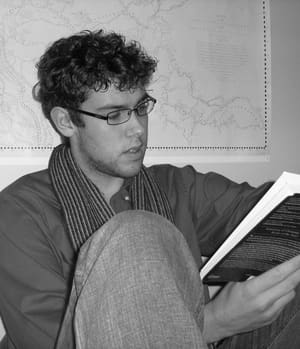In their new book, Living at the Crossroads, Craig Bartholomew and Michael Goheen advise readers to consider the world in which they live, the ideas which have shaped that world, and the role of a Christian worldview in modern Western culture. Bartholomew and Goheen provide an introduction to what it means to have a life-shaping Christian worldview, and how such a worldview is embodied amidst the rushed pace of today’s world. The book introduces the idea of a Christian worldview to those living between the narrative provided in the Bible and a world driven by the story of modernity.
Living at the Crossroads takes its title from the “crossroads” at which the story of the Bible (the Drama of Scripture) and the dominant story of Western culture, rooted in the Enlightenment, meet today. Bartholomew and Goheen argue that as Christians who interact with this Western, modernist context, which is rooted in foundational assumptions such as postmodernity, economic globalization, and consumerism, we have a responsibility to fully embrace a Christian worldview which recognizes that Christ’s redemptive work has something to say about all of creation.
Using Living at the Crossroads as a starting point, Redeemer University College and the Paideia Centre for Public Theology held a conference from January 7-10, 2009, which focused on how the basic framework offered by a Christian worldview calls us to faithful living within our daily lives—and in particular, life in the university. The conference aimed to encourage students, educators, scholars, and others seeking to live out their worldview to do so within their own disciplines. Through various lectures and seminars, the conference provided attendees with the basic tools needed to incorporate their worldview into all aspects of their discipline.
Living at the Crossroads (both the book and the conference) reminded me of a simple yet, essential fact: a Christian worldview cannot be limited to being an intellectual framework—it must affect the way we live. In his opening address at the conference, Craig Bartholomew referred to the notion of “plausibility structures”—the practical ways in which we put our ideas into practice. One only has to think of Mother Teresa and the Missionaries of Charity to see how one can live fully in God’s service. Living at the Crossroads reminds Christians that what we believe must have a direct influence in all the areas of our life. The richness of Bartholomew and Goheen’s work is that they do not require us all to be a Mother Teresa, but they do call us to lead lives that point to the love of Christ for this creation—the kind of love evident in how Mother Teresa lived.
Both the book and the conference remind us that our worldview, when lived out rightly, will act as a pointer to Christ’s reign in the here-and-now. When we obey the call of God to embody God’s redemptive story for creation in our life vision, our lives point to Christ, and we are not only focused on the “there-and-then” of God’s completed redemptive Kingdom, but can find meaning in living out God’s righteous will for creation today.

